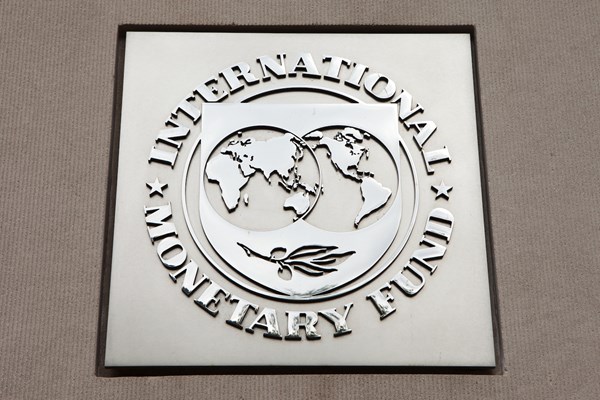The IMF will meet on April 3rd to discuss continuation of cooperation with Ukraine
The International Monetary Fund (IMF) will consider the continuation of cooperation with Ukraine on April 3. This was stated by the Resident Representative of the IMF in Ukraine, Jerome Vacher. Later, the date of the meeting on Ukraine appeared on the official website of the IMF.
Earlier, a meeting on the allocation of $ 1 billion to Ukraine was scheduled for March 20, but the IMF has postponed it. Prime Minister of Ukraine Volodymyr Groysman said that the delay was caused by the change in the economic situation in the country due to the blockade of the Donbas [since the end of January 2017, war veterans in the east of Ukraine have been blocking trade with the uncontrolled territories of Donetsk and Lugansk oblasts]. To resume work, the National Bank of Ukraine (NBU) and the Ministry of Finance had to update the forecasts, taking into account the effect of the trade blockade.
After the IMF provided the new date, the press service of the Cabinet said "the government hopes for a positive decision on the allocation of another credit tranche to Kiev."
"The support of the IMF is necessary for Ukraine today, as it forms the currency reserves of our country and will have an entirely positive impact on the economy and the exchange rate of the national currency," Groysman said.
Financial analysts are also confident that Ukraine will receive money from the IMF this time. Investment banker Sergey Fursa said that Ukraine has done a lot to get IMF money. In particular, it has adopted a budget and nationalized PrivatBank. The banker also explained why the tranche is important for Ukraine.
"The main thing is not that we get this money, as it will go to the reserves of the National Bank and have no significant influence. But this money is important as a signal. Ukraine remains in the program, Ukraine continues to make reforms, Ukraine will do the next steps to get the next tranche," Fursa said.
Oleg Ustenko, financial expert and Executive Director at The Bleyzer Foundation, also does not doubt that the loan to Ukraine will be given this time.
"During this time period, after March 20, Ukraine was supposed to give a new macroeconomic forecast, as well as to (more importantly) answer the question of what to do with the fact, for example, that the rate of economic development as should have happened objectively will not be achieved because of the blockade. And an important factor, of course, is the decision of the London Court yesterday [on March 29] concerning a quick review of the Russia-Ukraine issue of $3 billion [the so-called "Yanukovych debt", which the Russian Federation gave to Ukraine in 2013]. The decision of the London Court has not yet been made, but it will be adopted soon ... This should stimulate the IMF to act faster if they want to cooperate with us, give us money, as otherwise this big financial structure worth 40 billion dollars, which was built in cooperation with the IMF when the program was launched in March 2015, will fall apart... Plus, we have to give the $1 billion dollars to the IMF in the near future," Ustenko said.
Russian economist and former First Deputy Chairman of the Central Bank of the Russian Federation Sergey Aleksashenko, in an interview with RBC-Ukraine, spoke of how and when Ukraine will be able to continue without IMF loans.
"The assistance of the IMF can be abandoned when Ukraine, in a broad sense - state enterprises and banks - is able to enter foreign capital markets. For all potential investors who want to buy Ukrainian debts or shares, or somehow invest their capital in Ukraine, during the first couple of years the availability of the IMF program will be an indication that economic reforms in Ukraine are proceeding correctly. Therefore, the logic is very simple - you are making reforms, the program with the IMF ends in 2019, then for these two years the Ministry of Finance, state-owned banks, state-owned companies, and private companies must enter the capital market and prove themselves. If all this happens, then by 2019 Ukraine will begin to finance its balance of payments through borrowing," said Alexashenko.
He added that if such conditions are not met, then, most likely, there will be a new program with the IMF and Ukraine will continue to sit on the "credit needle" of the Fund.
